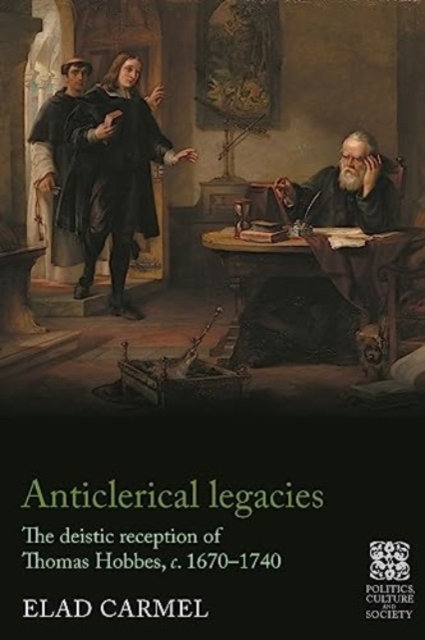
Anticlerical Legacies : The Deistic Reception of Thomas Hobbes, c. 1670–1740 Hardback
by Elad Carmel
Part of the Politics, Culture and Society in Early Modern Britain series
Hardback
Description
Anticlerical legacies is the first comprehensive study of the reception of Thomas Hobbes’s ideas by the English deists and freethinkers in the seventeenth and eighteenth centuries. One of the most important English philosophers of all time, Hobbes’s theories have had an enduring impact on modern political and religious thought.
This book offers a new perspective on the afterlife of Hobbes’s philosophy, focusing on the readers who were most sympathetic to his critical and radical ideas in the decades following his death.
It investigates how Hobbes’s ideas shaped the English anticlerical campaign that peaked in the early eighteenth century and that was essential for the emergence of the early Enlightenment. The book shows that a large number of writers – Charles Blount, John Toland, Anthony Collins, Matthew Tindal, Thomas Morgan, and many others – were more Hobbesian than has ever been appreciated.
Not only did they engage consistently with Hobbes’s ideas, they even invoked his authority at a time when doing so was highly unpopular.
Most fundamentally, they carried on Hobbes’s war against the kingdom of darkness and used various Hobbesian weapons for their own war against priestcraft. Analysing the ways in which the deists and freethinkers developed their nuanced theories and conducted their heated dialogues with the orthodoxy, they emerge from this study as sophisticated and valuable theorists in their own right.
The case of Hobbes and his successors demonstrates that anticlericalism was a key component of a much larger programme whose primary aim was to secure civil harmony, peace, and stability. -- .
Information
-
Out of stock
- Format:Hardback
- Pages:248 pages
- Publisher:Manchester University Press
- Publication Date:09/01/2024
- Category:
- ISBN:9781526168825
Information
-
Out of stock
- Format:Hardback
- Pages:248 pages
- Publisher:Manchester University Press
- Publication Date:09/01/2024
- Category:
- ISBN:9781526168825






